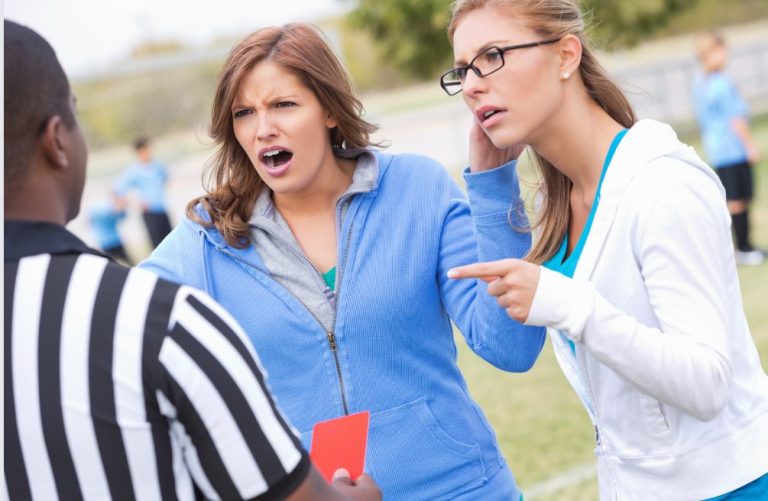In kid’s sports, there’s no doubt parents are essential – they’re the free ferry service, the half-time orange supplier, and the local cheer squad. But when it comes to sideline behaviour, some parents behave poorly, when this happens it’s often a case of ‘monkey see, monkey do’.
In a new study from the University of South Australia, researchers found a link between parents’ sideline conduct and athletes’ behaviours.
When parents behaved well – applauding good play, encouraging players, and enjoying the game – their child was more likely to project positive behaviour. But the more a parent behaved poorly – being overly critical, second guessing the referee, or yelling abuse – this was related to greater antisocial behaviours in their child.
In Australia, about 13 million adults and 3 million children take part in sport each year.

Impact of Poor Parent Sideline Sports Behaviour
The study assessed the perceptions of 67 Australian youth athletes (aged 12-17 years) participating in team-based sports. Athletes were asked to report their parents’ positive and negative sideline behaviour, as well as reflect on their own sporting behaviours.
Specifically, the study assessed five negative behaviours. It found that:
- 32% of participants reported never seeing any negative behaviours from their parents.
- 69% reported some form of negative behaviour from their parents (even if rarely).
- 18% said their parents sometimes or often said bad things about the way they played.
- 17% said their parents sometimes to very often yelled at the referee during the game after a bad call was made.
UniSA’s Dr Alyson Crozier says parents’ sideline actions can predict children’s on-field sports behaviours.
In our research, we found that when a player perceives positive support from a parent, the player also reported having positive sports attitudes and behaviours. Yet, when a parent engages in antisocial behaviours, their child will more likely behave similarly, potentially as frustration and aggression to their teammates and opponents.
Dr Crozier says that good sportsmanship is the cornerstone of a positive sports experience.
Children get far more enjoyment from playing sport when a parent is present, encouraging, and supportive. Such behaviours also help build a child’s self-esteem, and improve their life skills and wellbeing.
Yet poor parent behaviours can reduce a player’s confidence and damage their emotional and physiological wellbeing. In some cases, they can even lead to a child withdrawing from a sport altogether.”
“Sport is an important part of life in Australia. If we can encourage respect, sportsmanship, and fun, we can ensure that sport continues to be a positive experience for everyone,” says Dr Crozier.
Top Tips for Positive Parent Behaviour on the Sidelines
- Be a positive role model for your child – be courteous and respectful to coaches, referees, players, and spectators.
- Avoid shouting instructions – unless you are an official coach, focus on words of encouragement. Don’t ‘coach the coach’.
- Keep comments about your child and others positive – whether you’re at the sporting field, on the car ride home, or at home, don’t bad mouth other players, parents, coaches, or game officials.
- Prioritise having fun – remember, children want to play sport to have fun and socialise. Winning isn’t everything. Have fun yourself, and help your child enjoy sport by creating positive memories.
This study was conducted by Dr Alyson Crozier, Dr Margarita Tsiros and Liam McCabe. It can be accessed here.
For more top parenting tips on your child’s development, check out our School age: Development and behaviour section.





